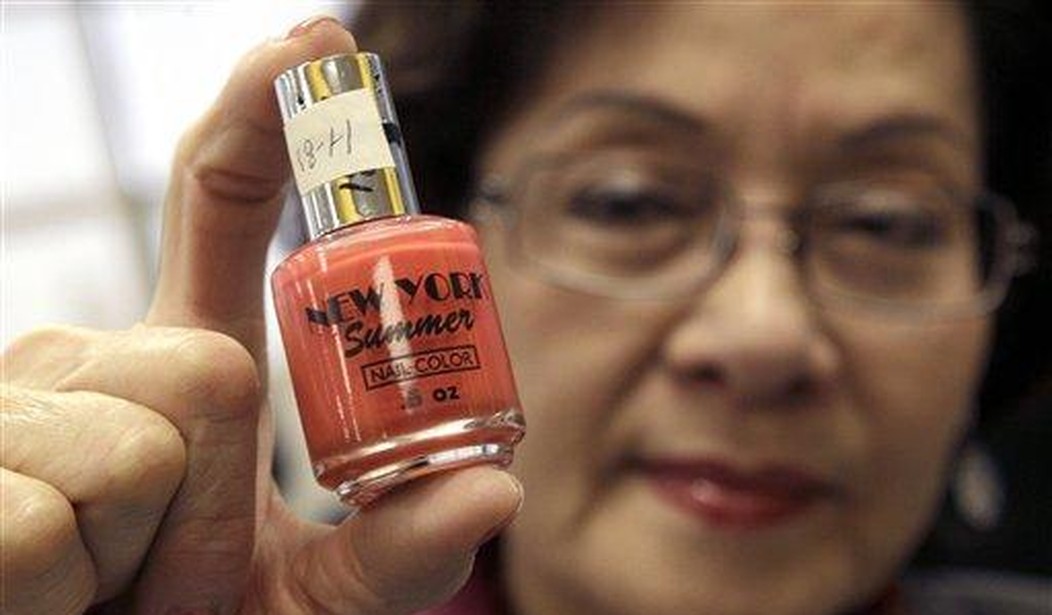Americans are hurting for jobs. But New York state's lawmakers are poised to make it even tougher to earn a paycheck by concocting licensing requirements for something as simple as giving a shampoo. The Albany pols have something to gain -- campaign contributions from those pushing the new requirement. But if you're eyeing a job in a hair salon, these politicians are making your life harder. Occupational licensing is a job killer.
More restrictions on working are not what Americans need. Jobs in personal care in New York state are down a staggering 37% because of the coronavirus shutdown.
Even so, New York lawmakers want to create a new state certificate for "shampoo assistant," the person who helps you with your plastic cape, bends you back to the wash sink and shampoos your hair. "Wet, wash, rinse, repeat." Sounds simple. But in New York, it will require completing 500 hours of training at a state-certified cosmetology school.
New York law already requires that anyone providing beauty services graduate from a certified cosmetology school, pass exams and get a state license. But in practice, the requirement has applied to coloring, cutting and styling hair, not shampooing. Generally, the same person who answers the phone, folds towels and sweeps up handles that task.
The new restriction is being pushed by the Salon & Spa Professionals of NYS. Follow the money to understand why. This organization rakes in membership fees from cosmetology schools. Their goal is to prevent people from working in the beauty industry until they've forked over a huge tuition to get a cosmetology certificate.
Tuition at Academy NYC of Cosmetology and Esthetics runs $14,500 for the 1,000 hours required to apply for a cosmetology license. Aveda Institute is even pricier, $16,995 for the course. It's a racket. Many students go into debt and have little chance of making enough to pay it back.
Recommended
This same tragedy is being repeated in many states where high-priced cosmetology schools prevent people from entering the beauty trade.
This racket would not exist except for the cooperation of state legislators. To complete the New York money trail, Richard Ostroff, of Ostroff Associates, the lobbying firm that represents Salon & Spa Professionals of NYS, has donated $1,150 to Assemblyman John McDonald III and $1,500 to Assemblywoman Carrie Woerner, two of the Democrats pushing for shampoo assistant certification.
Everybody makes out like a bandit -- except the working person who needs a salon job.
Similar licensing scams are hurting working people all across the nation. New York's requirements are not even the worst. Some states require as much as 2,100 hours of cosmetology school training to work in a salon. That's almost twice what is needed to become an emergency medical technician, making life and death decisions in the back of an ambulance.
State licensing abuses extend to many other occupations, from hair braiding and makeup artistry to interior designer and landscape architecture. All are intended to keep out competition.
Now, in the depths of the COVID-19 economic downturn, states should be eliminating barriers to employment, not piling on new ones. Florida just enacted The Occupational Freedom and Opportunity Act, a law to deregulate many occupations and make it easier for people to earn a living. Unreasonable educational requirements and licensing fees keep people out of work. States everywhere should copy Florida's new law.
They should be culling existing state occupational regulations to eliminate all but the few needed to protect the public's health and safety. For example, instead of 1,000 hours or more of expensive training at a cosmetology school, beauty salon workers should be required to take a course in hygiene, to protect their clients from infectious diseases such as the coronavirus and common bacterial infections such as MRSA (methicillin-resistant Staphylococcus aureus), which are often transmitted in nail salons.
But there is one profession that seems to need more oversight -- not less. That's the politicians themselves, who could use lessons on the harms done by overregulation and -- oh, yes -- on ethics.
Betsy McCaughey a former lieutenant governor of New York and author of "The Next Pandemic," available at Amazon.com. Contact her at betsy@betsymccaughey.com.

























Join the conversation as a VIP Member